drinking water filtration methods explained
- Guides
- by Louise
- 06-03-2025
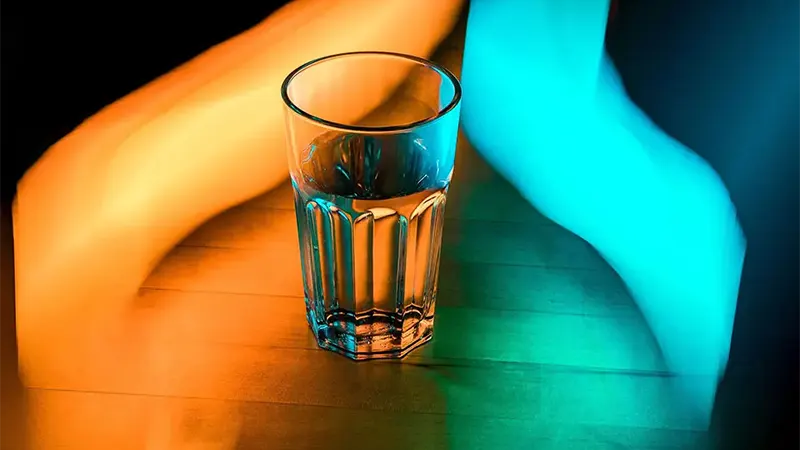
Understanding the different types of drinking water filtration
If you’re concerned about the quality of your drinking water, from either a private water supply or mains supply, it’s important to understand the different water filtration methods so that you can decide what the best home water filter system is for you.
In this comprehensive guide we’ll explore the various water filtration methods that are used in homes throughout the UK. Which filter is best is always the one that solves the problem you have.
At Fountain Filters we know from years of experience that the expansive range of water filtration methods available can leave people who desperately want to find out what the best water filter for tap water is; completely flummoxed.
From activated carbon filters to reverse osmosis and beyond, we’ll guide you through the different water filtration techniques and what those water filters filter out of your household water.
With our help you’ll be one step closer to improving the tap water in your home.
And just as a heads up, the most important part of this article is the section on ‘how to select the best water filter for your needs’. That and the fact we’re always here to help you of course.
The importance of filtering your tap water
People place a great deal of importance on their health and well-being, and rightly so. As a society we are constantly being told to look after ourselves better, both physically and mentally.
Access to high quality drinking water is fundamental to a healthy life.
This means that people take it seriously and want to know how they can filter water to remove any risk of contamination and make the water taste and smell better.
Some may say that the filtration of drinking water in the UK has become a necessity, not a luxury. Lack of confidence in local water authorities across the UK has further supported people’s desire to learn how water filters work and what problems they can solve.
Consumption of contaminated water should be avoided at all costs. A reliable water filter from a trusted supplier will help mitigate any risks both now and in the future. Peace of mind is a powerful tool.
Filtering your tap water also supports the environment as there is less reliance on bottled water which contributes to the single use plastic problem.
Overview of water filtration technologies
When it comes to water filtration techniques there are several methods available including:
• Activated carbon filters
• Reverse Osmosis (RO)
• Ultraviolet (UV) filtration
• Ion Exchange filters
• Ceramic filters
• Distillation
Different water filtration methods have distinct advantages and disadvantages depending on where it’s used and what you are trying to improve about your water.
Let’s get started.
Activated carbon filters
Here at Fountain Filters, we call activated carbon filters the ‘magic ingredient of water filtration’.
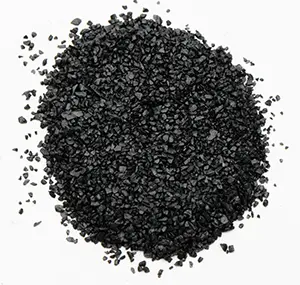 Activated carbon filters are some of the best home water filter systems in the UK.
Activated carbon filters are some of the best home water filter systems in the UK.
Many people choose to install an activated carbon filter because they want to improve the taste and smell of their water by removing the disinfectant chlorine. Chlorine is added to public water supplies across the UK to ensure household water is free of harmful bacteria and therefore safe to drink.
Carbon water filters are phenomenally good at improving the taste and smell of drinking water as well as removing a wide range of contaminants such as pesticides, herbicides, trace pharmaceuticals, PFAS, hormones, endocrine disruptors, PAHs, THMs, some heavy metals including particulate lead, some nitrates, some phosphates, some VOCs.
Activated carbon filters rely on a bed of activated carbon, which is a highly porous material with a large surface area. As water passes through the carbon filter, impurities are adsorbed onto the carbon, effectively trapping the contaminants that may be present in water.
Water filtration methods that incorporate activated carbon are usually affordable and incredibly easy to maintain in comparison to other water filtration techniques out there on the market.
Reverse osmosis (RO)
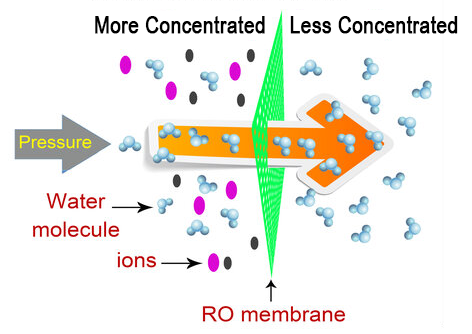 Reverse osmosis (RO) is a widely recognised water filtration method that has gained popularity due to its effectiveness in removing a broad spectrum of impurities such as fluoride, chlorine, chloramine, lead, pesticides, nitrates, sulphates and dissolved inorganic solids (such as salts).
Reverse osmosis (RO) is a widely recognised water filtration method that has gained popularity due to its effectiveness in removing a broad spectrum of impurities such as fluoride, chlorine, chloramine, lead, pesticides, nitrates, sulphates and dissolved inorganic solids (such as salts).
Your household water pressure pushes the tap water through a semi-permeable membrane that allows only water molecules to pass through, blocking larger molecules such as salts, heavy metals, and pathogens.
Reverse osmosis as a water filtration technique provides a high level of purification, so is particularly effective in areas where water quality is continually being compromised.
While it’s true that reverse osmosis removes unhealthy contaminants that may be present in your water, it’s important to consider some of the limitations if you’re considering purchasing a reverse osmosis system. We discuss this in the section below on ‘How to select the best water filter for your needs’.
UV filtration
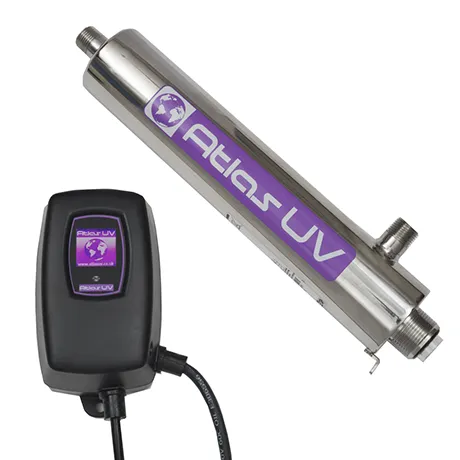 Ultraviolet (UV) filtration is a favoured water filtration method if you access water from a private water supply such as a well, spring, or borehole. It’s not normally used as a water filtration technique in households on a mains supply as the water has already been treated with chlorine before it reaches your tap.
Ultraviolet (UV) filtration is a favoured water filtration method if you access water from a private water supply such as a well, spring, or borehole. It’s not normally used as a water filtration technique in households on a mains supply as the water has already been treated with chlorine before it reaches your tap.
UV filtration is a powerful weapon against microorganisms such as bacteria, viruses and protozoa. Water passes through a chamber where it is exposed to ultraviolet light, which plays havoc with the DNA of harmful pathogens, rendering them incapable of reproduction and infection.
One of the significant advantages of installing a UV water filter is that it does not introduce any chemicals such as chlorine into the water, making it a safe way to disinfect water. It is also quick and efficient, requiring only a few seconds of exposure to eliminate a wide range of pathogens effectively.
Ion exchange filters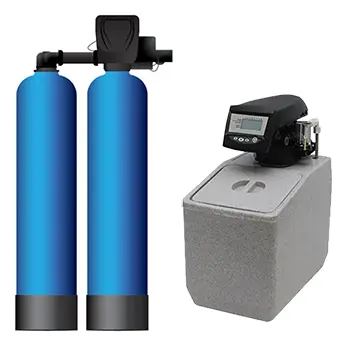
Ion exchange water filtration methods form the basis of how hard water is turned into soft water.
If you live in a hard water area and install a water softener you are effectively buying an ion exchange filter.
The hard ions (calcium and magnesium) present in hard water are replaced with sodium ions, in a process called ion exchange.
Salt-based ion exchange filters have been around for decades. They are what could be classed as the traditional water softener.
An ion exchange filter requires regular maintenance and the addition of water softener salt.
Many people believe that an ion exchange filter is the only water filtration technique for treating hard water, but it’s not. It’s important to highlight another way of conditioning hard water and that is with the use of TAC media.
Ceramic filters
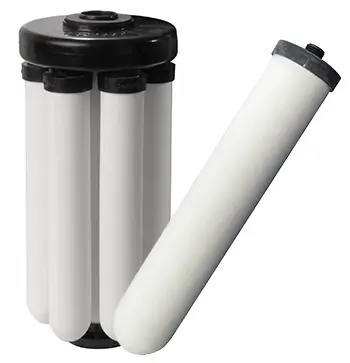 When used as a water filtration method ceramic filters are an effective way of purifying water naturally.
When used as a water filtration method ceramic filters are an effective way of purifying water naturally.
The microscopic pores in ceramic filters are particularly effect at filtering out bacteria, moulds, cysts, and sediment. The pores are so minute that microorganisms are trapped while allowing clean water to pass through.
The beauty of ceramic filters is that they can be gently scrubbed to prolong the use of the cartridge by a few months, but this doesn’t mean that you never need to change them! Additionally, ceramic filters do not require electricity to operate, making them ideal for use in areas with unreliable power sources. Many ceramic filtration systems also come with additional features, such as activated carbon layers to remove chemicals such as chlorine and forever chemicals.
Distillation
As far as water filtration methods go, we’re not huge fans of people using distillation to clean up their drinking water or indeed drinking distilled water.
Distillation works by boiling water in one vessel and then condensing the steam back into liquid form in a secondary vessel. Distillation removes a wide range of contaminants, including heavy metals, salts, bacteria, parasites and viruses. As the water boils, impurities are left behind, ensuring that the condensed water is of high quality.
There is no denying that distillation is one of the most thorough water filtration techniques available but drinking distilled water is not recommended in the long term. Why? Because once water is distilled there are no minerals in it which can seriously mess us your body’s pH, electrolytes, fluid, and mineral levels. The human body is not designed to drink distilled water.
We often get people asking for a filter that will give them pure water and we would never recommend distillation unless it was the last water filtration method available on the planet!
How to select the best water filter for your needs
This is probably the most important section of this article, and one that might throw up more questions for you than answers. Always remember our telephone number 01352 838 281 is clearly visible on our website and we are ready to answer all the questions you have about water filters.
Out of the several water filtration methods available, selecting the one that is going to be the best for you involves considering the following points.
• What is it that you don’t like about your water? When people call or message us and they’re unsure about what the best home water filter system for their needs is going to be, this is the first question we ask. The answer helps us narrow down the most suitable water filtration method for their needs and enables us to give the best possible advice.
• Is there anything specific that you want to remove from your water? You may have had your water analysed and the report highlights some specific issues that need to be resolved. This is more common if you are on a private water supply, and we are happy to help you interpret what that report is telling you. Or, you may have decided that you don’t want a particular contaminant to be present in your water, such as fluoride or are tired of limescale destroying your household appliances and want to find out how to treat your water accordingly.
• Are you on a private water supply or mains water? This does make a difference to the type of water filtration method that will be best for your needs.
• Do you just want to treat the water coming out of your kitchen tap or every tap in your home? If you want to filter your drinking water only this means going for a much smaller and lower cost unit than if you were treating water from every tap in your house.
• How big is the place you live in and how many people live there? You may think this is a bizarre question, but it’s important to determine what the likely demand on your water supply is going to be. This will have a direct impact on the size of water filter that you will need.
• How much do you want to spend? Paying more doesn’t always mean better in water filtration. This is where our expert help is invaluable as we never advise you to buy something that you don’t need. Our top priority is that you get something which is going to solve the problem you have with your water. Remember that you’ll have the upfront cost of the water filter system and then the annual cartridge renewal.
• Are you committed to the easy maintenance of a water filter? Bear in mind that to ensure the steady supply of filtered water in your home you’ll need to change the water filter cartridge/s every 12 months.
The limitations of each water filtration technique
We’ve covered how each of the different water filtration methods works and their benefits. Now let’s move on to some limitations of each of the water filtration techniques.
The main reason for talking about limitations is that water filtration isn’t a one size fits all. That’s why our purpose is to help guide you towards the best home water filter system for your needs and not the latest wonder product that Joe Bloggs and his celebrity investor has advertised all over social media!
Activated Carbon Filters
While activated carbon filters are a natural method of filtering water, relatively low cost, and easily maintained they do have some limitations.
Ordinary carbon filters are not capable of removing contaminants such as heavy metals, fluoride, or limescale, and therefore need to be used in conjunction with more specialist water filter cartridges. That’s why you’ll see that many of our drinking or mains water filters are twin or triple units.
Understanding the specific contaminants present in your water will help you determine whether activated carbon filters are the right solution for your needs.
Water must remain in contact with the activated carbon filter long enough to ensure maximum effectiveness. If water flows too quickly through the filter cartridge your water won’t be properly filtered. This is why we help you understand that the size of filter system matters depending on how much of your household’s water you want to treat.
Reverse Osmosis (RO)
The initial financial outlay of a reverse osmosis system can be quite expensive as they are more complex systems and will normally require professional installation. Ongoing maintenance will also be more costly as there are more parts to replace in an RO system than carbon water filters.
RO systems are not normally suited for whole house applications as the filtration process is slower than other water filtration methods. Water is produced in much smaller quantities and a lot of water is wasted during the filtration process.
A reverse osmosis filter will also remove the beneficial minerals from your water. This of course can be overcome by adding a remineralisation stage, or ensuring you have a very good diet.
UV Filtration
UV filtration does have some limitations.
It is not effective at removing chemical contaminants or heavy metals, so it is often used in conjunction with other filtration methods to provide comprehensive water purification.
Additionally, UV systems require electricity to operate, which may be a consideration for those living in areas prone to power outages.
Regular maintenance and annual lamp replacement is vital to ensure optimal performance.
Understanding these factors will help you determine if UV disinfection is the right fit for your water quality needs.
Ion Exchange Filters
While a water softener is excellent at removing calcium and magnesium, the minerals responsible for limescale, they do increase sodium levels in the water due to the exchange process. Hard ions (calcium and magnesium) are replaced by sodium.
This is why many people will install an RO system in addition to the water softener to remove the increased salt levels before consuming or cooking with it. The alternative is to have an unsoftened supply of water to the kitchen cold water tap.
Ceramic Filters
Ceramic filters will produce good clean water for drinking and cooking with but may not effectively remove certain dissolved chemicals, viruses, or heavy metals. As with carbon filters they are often used in conjunction with other water filtration methods to ensure more robust purification.
Another drawback of ceramic filters is that they aren’t always suitable for whole house use due to flow rate restrictions.
Distillation
We’ve already highlighted that we’re not fond of distilling drinking water, and we’re quite taken aback that people out there believe that drinking distilled water is healthy.
Distillation is expensive, energy-intensive and slower than other water filtration methods. Beneficial minerals such as calcium and magnesium are lost, which has a massive impact on the nutritional profile of the water as well as the taste.
Conclusion
Our purpose has been to explain the different water filtration methods available and help you understand that the best home water filter system is the one that solves the problem you have with your water.
At Fountain Filters, we want you to have access to clean and safe drinking water that suits you and your budget. It’s important to us that you consider all water filtration methods. Seek professional advice if you are unsure about any aspect of home water filtration.
We always provide help free of charge, no matter how many times you call 01352 838 281 or leave messages on our helpdesk.
Ultimately, the goal is to find a reliable solution that provides peace of mind while ensuring that you and your loved ones have access to safe, clean drinking water. By taking the time to evaluate your options and consider your specific circumstances, you can confidently choose a water filtration method that will serve you well for years to come.
FAQs
What is the most effective water filtration method?
There is no single best method. The most effective water filtration method is one that solves the problem you have with your water.
Which water filter removes the most toxins?
This depends on what you consider to be a toxin. Toxicity of what’s in water is highly subjective and dependant on concentration and tolerance levels – this is an individual and variable subject.
Is there a water filter that removes forever chemicals?
Yes, and our top three water filters that removes forever chemicals (PFAS) are the Oyster TC, Moby Cold Water Tap Filter, and the Doby.


